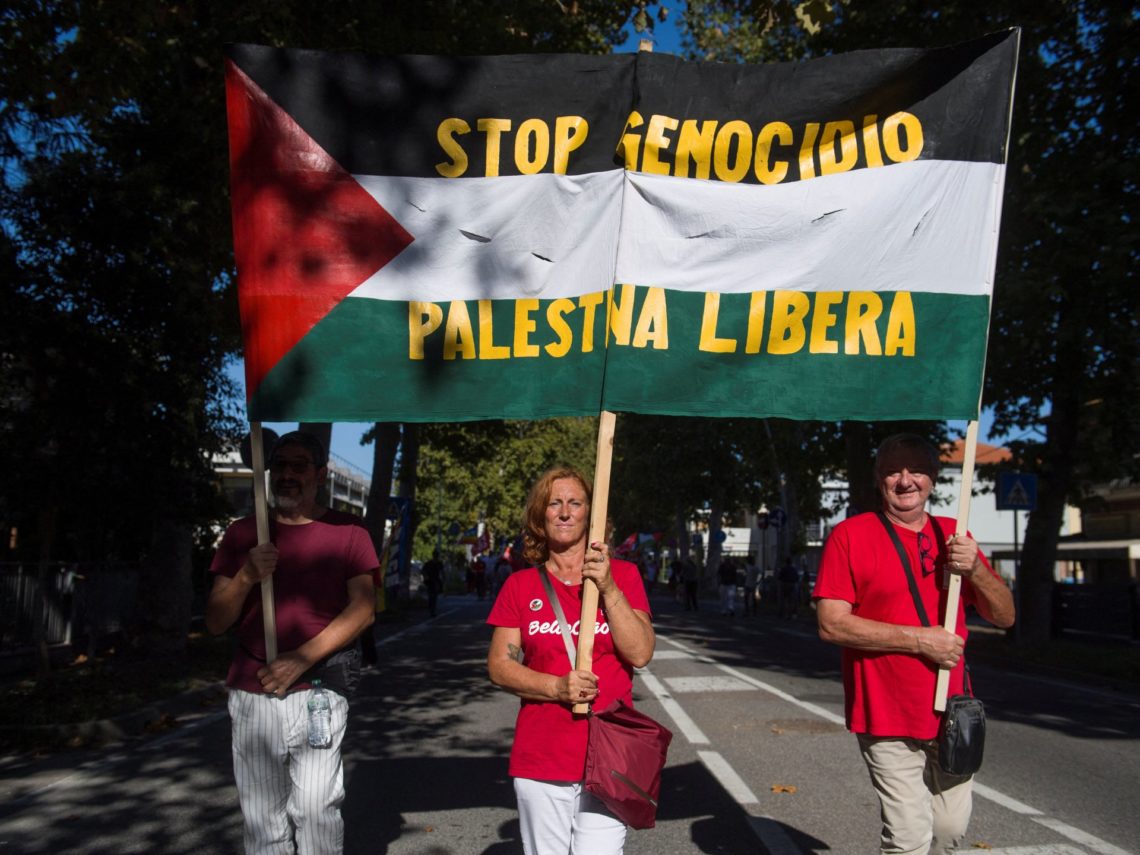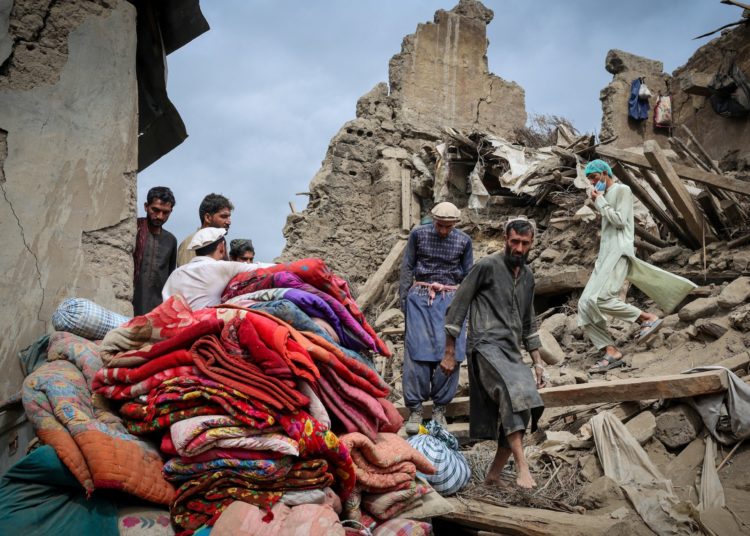A ceasefire has been in effect in Gaza since October 10, but Israel has not stopped its brutal violence. In the span of three weeks, it has killed more than 220 Palestinians. On Tuesday, it massacred more than 100 people in 24 hours. Israel continues to refuse to let in the amount of aid agreed in the ceasefire. It is blocking materials and equipment for reconstruction and large-scale medical evacuations.
In the occupied West Bank, Israeli soldiers and settlers continue to attack the Palestinian people and their property with impunity. They have killed more than 1,000 Palestinians, including 213 children, since October 7, 2023. Just on October 16, Israeli soldiers shot dead a nine-year-old child while he was playing football with friends.
A ceasefire clearly will not stop the killing as long as Israel receives political, military and logistical support from the West to continue its occupation and colonisation of Palestine. Two years of street protests throughout the world have sought to pressure governments to reverse their position on Israel, but they have failed to achieve significant change.
Large-scale labour mobilisation may be the answer. Labour unions, particularly in Europe, are uniquely positioned to play a central role in undermining their governments’ support for Israel. Given the active trade between Israel and European countries and the logistical significance of European ports, workers in many sectors could make a difference by organising for Palestine.
Why labour action is a powerful tool
Over the past two years, millions of people have marched across Europe, yet governments have largely ignored calls to end all support for Israel. Even the Irish government, despite its vocal support for Palestinian rights, engages in large-scale trade with Israel. Ireland was Israel’s third largest importer in 2024.
Public marches often serve as a pressure valve, channelling dissent and lowering pressure on governments to change policy. Industrial action, however, is different. Workers drive the economy. When they refuse to carry out their duties, the consequences can be politically and economically costly.
Unlike protest marches, strikes and industrial actions can paralyse supply chains, raise production costs and force concessions. Unions have the organisational experience to escalate actions strategically – from localised slowdowns to national-scale strikes – turning economic disruptions into political pressure.
In liberal democracies, unions remain the most effective instrument through which people can force governments to act. And there is plenty of evidence of that in recent history.
For example, labour unions in Western countries played an active role in challenging the apartheid regime in South Africa. The Irish anti-apartheid strike at Dunnes Stores in July 1984 when workers refused to handle South African goods in protest against apartheid became a landmark in the history of workers’ struggles. Similarly, in November 1984, San Francisco dockworkers took a stand by refusing to unload cargo from South Africa.
These and other instances of solidarity action by workers expanded the momentum of the anti-apartheid movement in the West, which ultimately led to governments officially imposing sanctions on the apartheid regime.
Disrupting EU-Israel trade
The European Union is Israel’s largest trading partner, accounting for 32 percent of Israel’s total trade in goods in 2024. The EU supplies 34.2 percent of Israel’s imports and receives 28.8 percent of its exports. Much of Israel’s military supplies and logistics come from EU countries. Disrupting this supply chain could directly undermine Israel’s war machine.
Ports are critical chokepoints in this chain because they control the flow of goods. Selective industrial action at ports halting shipments to or from Israel would have a significant impact. Israeli goods represent just 0.8 percent of the EU’s total trade, so such actions would hit Israel hard while minimally affecting EU economies.
Moreover, disrupting EU ports would ripple beyond Europe. Much of Israel’s trade with the United States, its top trading partner with $55bn in trade in goods and services in 2024, passes through major European ports. Blocking transshipments or increasing cargo costs by forcing ships to avoid EU hubs could increase steeply the cost of Israeli logistics.
Trade unions can also take action by refusing to handle goods produced in Israeli settlements within occupied Palestinian territory. Or they can go further and refuse to deal with any products destined for or coming from Israel. This would make engaging in trade with Israel quite costly for small- and medium-sized European businesses and corporations.
In doing so, trade unions would be upholding international law and acting in accordance with established human rights principles.
Given the wide scope industrial protest action can have, solidarity movements should seek to ally with labour unions across Europe. Solidarity groups can focus on mobilising public support, promoting consumer boycotts and educating communities about Palestine’s history and Israel’s actions. These activities sustain legitimacy, widen the support base and keep the Palestinian struggle in public consciousness.
Meanwhile, unions can take direct action at production sites and ports, halting the flow of goods to Israel.
The alliance of solidarity movements and unions would shift the struggle from symbolic protest to material confrontation with the systems sustaining Israel’s war. In September, Italian activists and workers demonstrated just how effective such combined action can be when they launched a national strike for Gaza.
Converging interests in labour and human rights
Israel’s war and colonisation of Palestine rely on close relations with corporations, particularly in Europe and North America. Many of these corporations are also major employers in these places, exploiting workers, driving down wages and lobbying for labour deregulation while profiting from occupation and war. They lobby governments to support Israel and buy weapons and technologies tested on Palestinians to use for surveillance and repression on their own people.
This creates common ground for solidarity movements and labour unions to unite against shared oppressors. By disrupting Israel’s supply chain, unions can not only weaken its war effort but also hold corporations accountable for prioritising profits over human lives – whether Palestinian or European.
Such convergence of effort between the solidarity movement and labour unions is crucial, especially now that Israel has switched to low-level killing and starvation under the guise of a ceasefire to placate global outrage.
We have already seen this pattern of continued genocidal violence in previously reached agreements, which underscores why symbolic gestures and diplomatic promises are not enough to stop the genocide in Gaza. Only tangible coordinated action can break Israel’s war machine.
Labour unions in Europe have the power to do just that by disrupting Israel’s economic lifeline through strategic industrial action. By targeting supply chains that fuel the war, unions can pressure complicit corporations and force governments to abandon empty rhetoric. Symbolic protests and chants against the war won’t stop Israel from killing Palestinian children. Workers must unite, take a stand and end the colonial violence in Palestine.
The views expressed in this article are the author’s own and do not necessarily reflect Al Jazeera’s editorial policy.
The post How labour unions in Europe can help end Israel’s genocide in Gaza appeared first on Al Jazeera.




